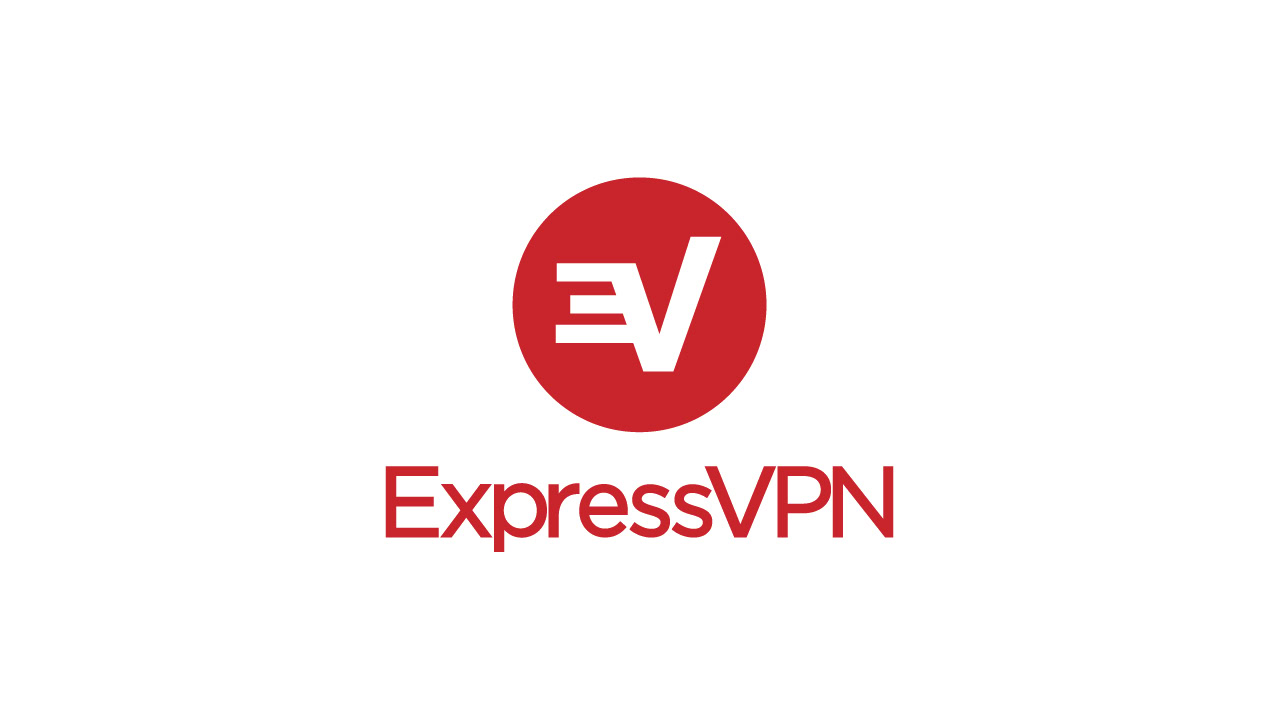Affiliate links on Android Authority may earn us a commission. Learn more.
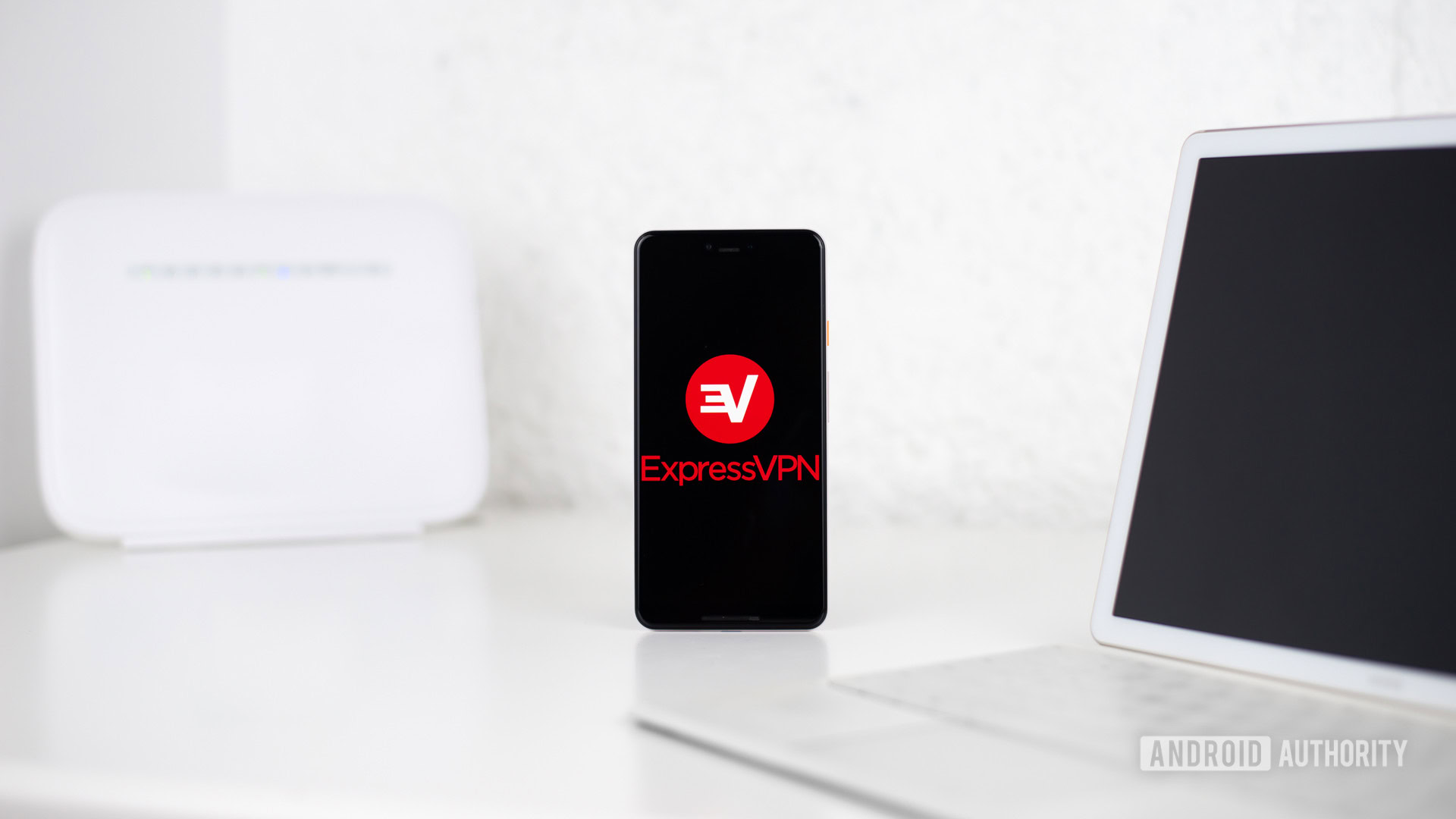
ExpressVPN review: Not the cheapest, but the best
Published onMarch 12, 2021
ExpressVPN ExpressVPN
What we like
What we don't like
ExpressVPN ExpressVPN

Update (March 12, 2021): ExpressVPN has re-designed its apps and introduced its own VPN protocol called Lightway that offers faster connection and data speeds. The review has been updated with this new information and testing.
A VPN (virtual private network) has almost become a necessity for privacy and security, and there are a lot of other advantages to using one. Many consider ExpressVPN to be one of the best around, and I certainly found that to be true when I first reviewed it back in 2018. Now facing a lot more competition, does the revamped design and new VPN protocol help keep ExpressVPN at the top? We answer that question and more in this ExpressVPN review!
ExpressVPN is great for privacy
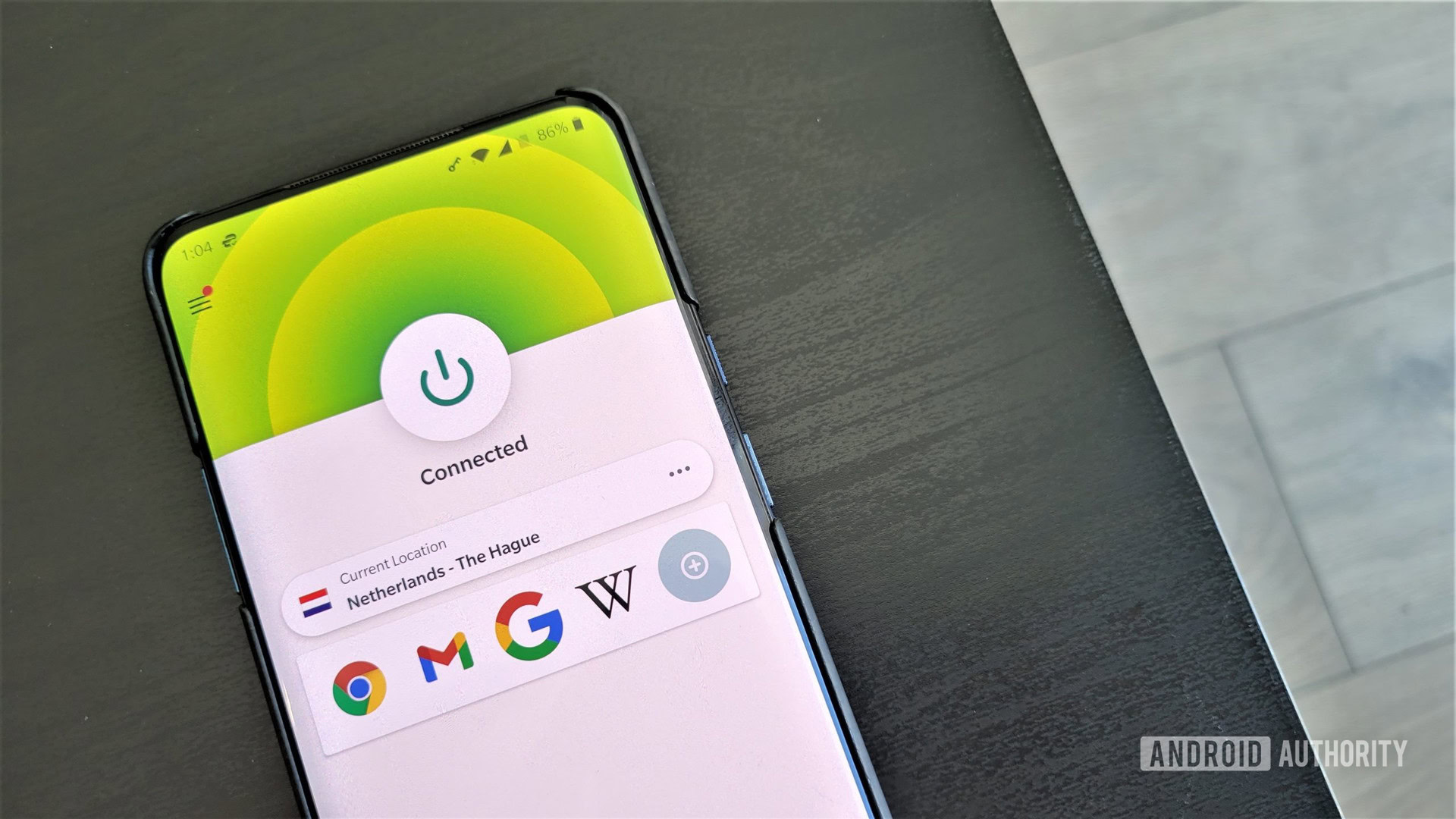
A VPN itself can track some of your information, and that kind of defeats the purpose for most users. Luckily, ExpressVPN is one of the better options in this regard. It has a strict no-logging policy that ensures that no activity or information that could help identify the user is logged. That’s not to say that everything is perfectly anonymous though.
ExpressVPN keeps some personal information for their own records, like the email address used to sign up and any payment info. Granted, there are ways around this. You can use a dummy email account or pay with Bitcoin. The service also records successful connections to a server (but not the starting IP address) and the total amount of data transferred per day (but not what the data is). ExpressVPN says that this is collected to better improve their service and nothing can be used to track user activity or identity.
ExpressVPN lays everything out clearly in its privacy policy. It’s generally good practice to find and go through the privacy policies of any VPN that you’re considering. Another good idea is to see where a VPN is established, since a country’s privacy laws, especially if it’s part of the 14-eyes surveillance alliance, often play a big role. ExpressVPN is based in the British Virgin Islands, which is an excellent choice for a privacy-minded company.
You get the important security features, but others offer more
ExpressVPN uses the OpenVPN protocol and AES-256 encryption to keep all your data secure. If you’re looking for a VPN for personal use, this is ideally the “minimum” it should offer. The company also introduced its own protocol recently called Lightway. It’s as secure and offers faster connection and download speeds. ExpressVPN also doesn’t have any issues with IP and DNS leaks when I tested for them.
Another key feature that you should look for is a kill switch, or Network Lock in this case. It basically kills the Internet connection and any data transfer if the VPN connection drops for any reason. That way, you aren’t unknowingly transferring any info during reconnection. This feature was particularly useful a while ago, because dropped connections used to an issue.
It’s not nearly as much of a problem anymore, but a kill switch is still useful to have. However, something to keep in mind is that while you get this feature on desktop apps and Android, it isn’t available on iOS yet. If a kill switch is a must-have, as it should be, you’ll have to look for other VPN options.
ExpressVPN covers almost everything you’ll need to keep your information secure, but others have more security features that may interest you. Some services come with a built-in ad-blocker, a few even come with anti-malware capabilities, and others let you use server hopping for extra security. The point being that while Express covers the “basics,” there are competing VPNs out there that have more to offer.
The apps are getting better, but some issues remain
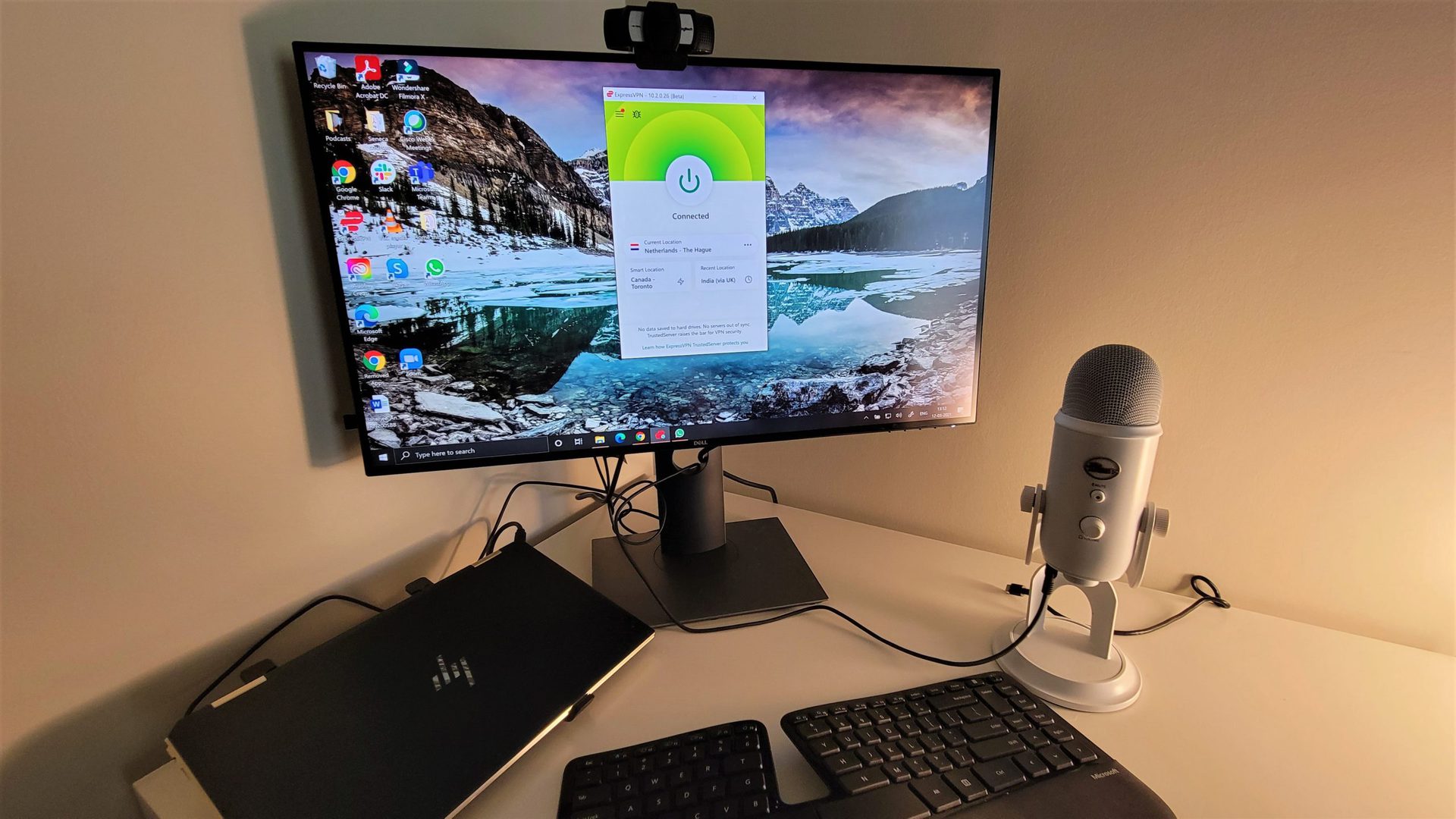
First the good news. You can use ExpressVPN on almost any device. There are mobile and desktop apps, including Linux systems and Chromebooks. You can set it up on Wi-Fi routers, or make use of browser extensions. You can even use ExpressVPN on certain ebook readers, all gaming consoles, a lot of smart TVs, and most streaming devices.
Basically, you will be able to use ExpressVPN on any mainstream device, even if you may have to jump through some manual setup hoops for some. Of course, it only allows five simultaneous connections, which isn’t a lot if you want to protect everything. The keyword is simultaneous though, so you can disconnect devices as needed. You could also get a VPN Wi-Fi router to get around this problem.
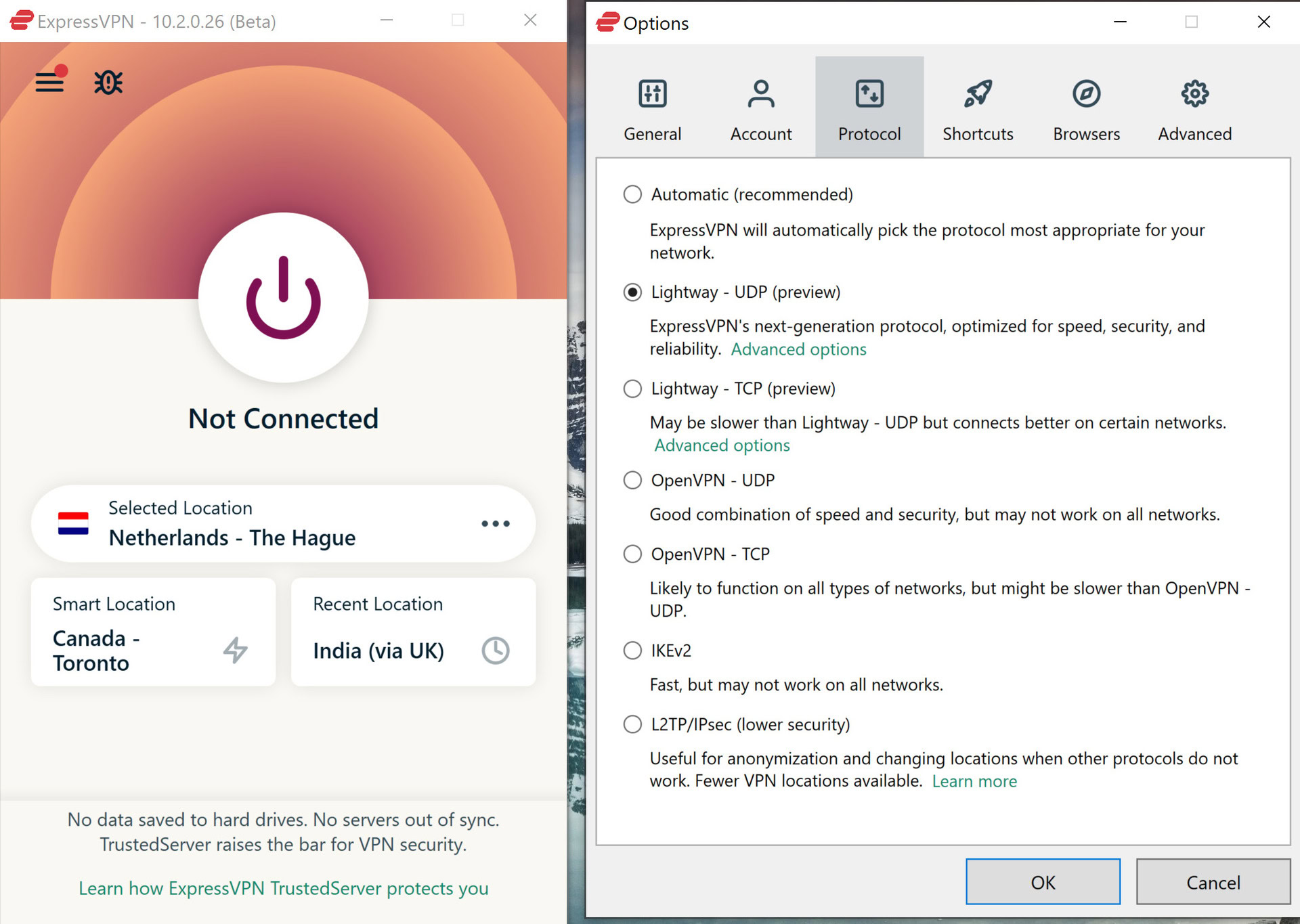
Being able to use it on any device is fantastic. The new design is a touch flashier than before, but doesn’t make a huge difference. The Windows app still needs some work. While I don’t face issues with connection drops anymore, the app hangs sometimes. This happens especially when the laptop is in sleep mode. If the VPN is still connected when the device goes to sleep, it’ll be stuck when I wake the system. It’s almost impossible to re-establish a connection, and I need to restart the computer to fix it.
Props have to be given where they’re due though. ExpressVPN does a great job with updating its apps regularly, and most bugs I’ve come across get fixed eventually. I’ve also faced absolutely no problems when it comes to the service side of things. Connections are stable with rarely any drops. The kill switch works as expected, even if it isn’t required much. The user interface is also very simple and largely identical across devices, so there’s no learning curve with these apps.
Lightway is impressive
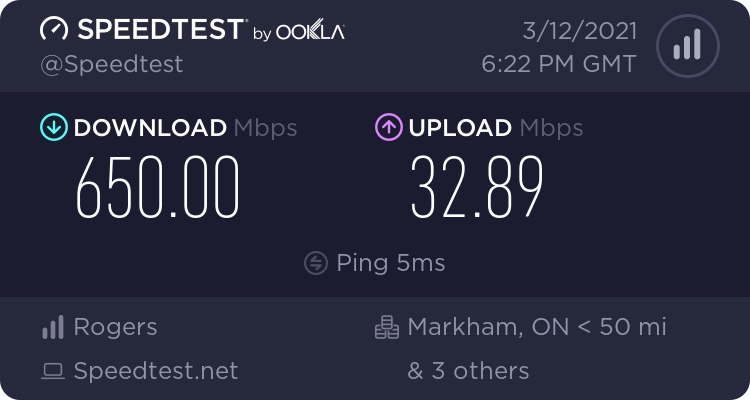
ExpressVPN continues to offer speeds that are plenty fast, and more importantly, consistent. If you look at the speed test results, you’ll notice that the drop in speed was almost identical across the board, regardless of which server I was connected to.
The last time I updated this ExpressVPN review, I wasn’t as impressed with the data speeds. It was still the most consistent VPN service I used, but I did see an unexpected drop in data speeds. ExpressVPN goes a long way in solving this issue with the introduction of its VPN protocol called Lightway. It’s currently still a preview option, so there are some kinks to work out. But when it works, it works incredibly well.
The data speeds are back to the level I was expecting. There’s still a 50%-60% drop in my case, but it’ll be closer to the actual speed if you have a slower Internet connection. And at the speeds I get, even a 50% drop is fast enough to do everything I want to do. Lightway also cuts the connection time by a huge margin. It has gone from 8 to 10 seconds to connect to a server to just a couple of seconds or faster this time around.
ExpressVPN is not only the most consistent, but one of the fastest.
I’ll be the first to admit that these speed test results aren’t scientific, but just to give an idea of what you can expect. The problem with finding objective scores is that results can fluctuate significantly from user to user, depending on where you are, the server loads at the time of testing, and numerous other factors. I run the tests at different times though and picked a batch that works out to about the average.
There’s also something good of course — consistency. Since my network speed is pretty good, even a decent drop didn’t hurt my usage experience. It was also close across the board, regardless of which server I was connected to, except for locations that are really far away.
The best way to know whether a VPN is right for you is to use it for a while. ExpressVPN doesn’t offer a free trial of any kind, but you can take advantage of a no-questions-asked money-back guarantee for 30 days.
Is ExpressVPN still worth the price?
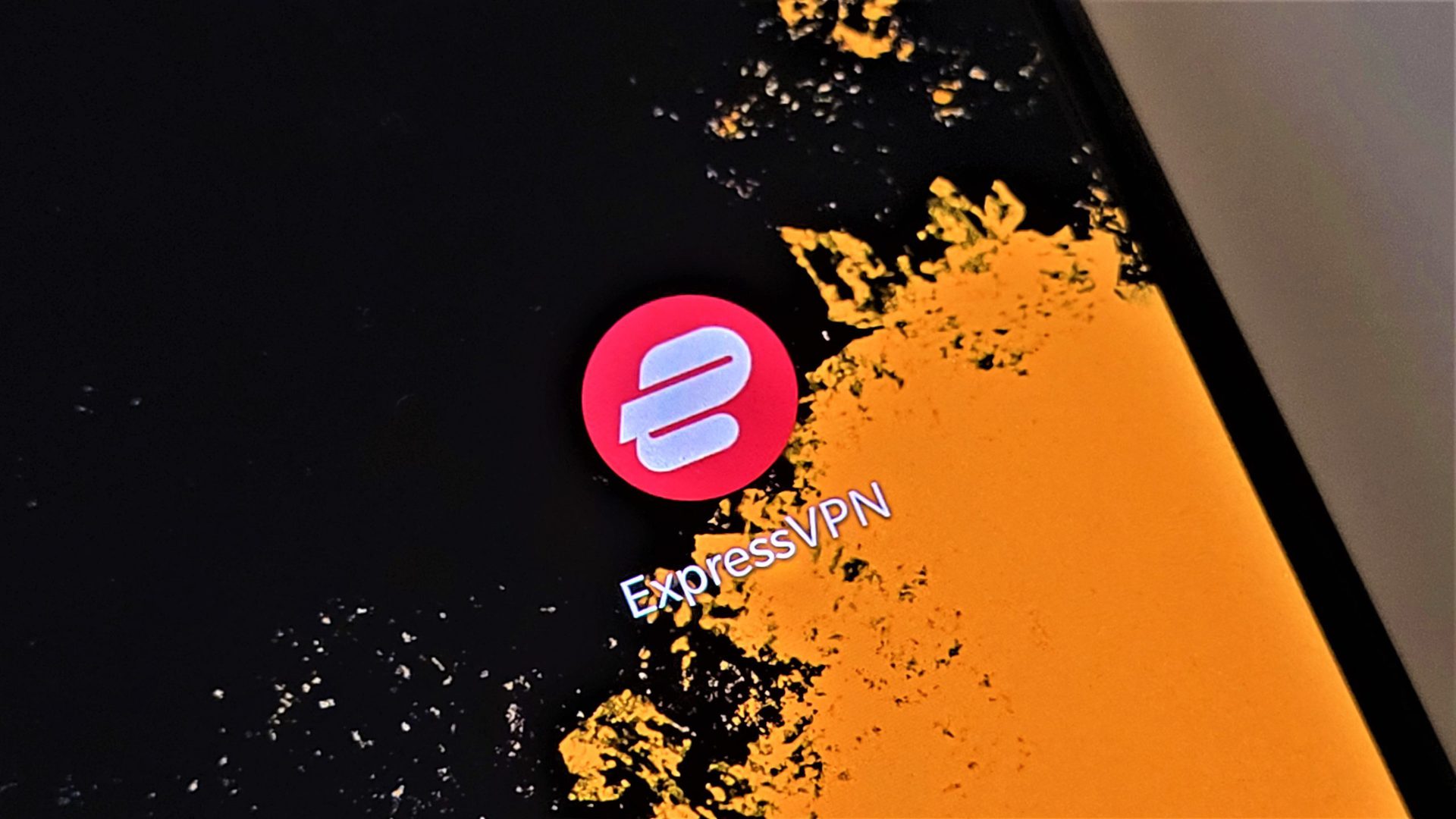
ExpressVPN has a lot going for it. It delivers everything you’d expect with regard to privacy and security. With over 3,000 servers in 94 countries and 160 cities, you shouldn’t have trouble getting connected. It’s an excellent option if you plan to use a VPN to circumvent geolocation restrictions or torrenting. You also get good customer service with a 24/7 live chat.
That said, ExpressVPN is also one of the most expensive options around with a monthly charge of $12.95 or an annual plan of $99.95. There are plenty of affordable VPN services out there, and some even have more to offer.
I still think that ExpressVPN is worth it and remains my go-to VPN service of choice. I’ve tested and reviewed quite a few VPNs and this is the one that I always come back to. However, ExpressVPN has gone from being at the top of the pile to one of the many premium services available right now.
